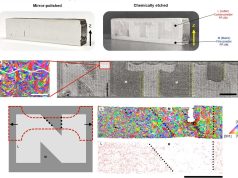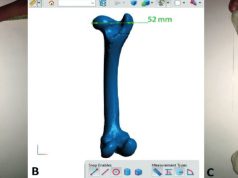University of Exeter experts believe that blockchain technology will soon be able to be applied within items produced by 3D printers.
The use of 3D printing is rapidly growing in a range of industries – including aeronautics, car manufacturing and dentistry – but innovation has become constrained because of the lack of clarity over legal rules. Intellectual property is currently protected by Copyright Law, Design Law, Patent Law, Trade Mark Law, Passing Off Law, Misrepresentation, Moral Rights, and Technical Protection Measures. Contractual and jurisdictional issues between e.g. China and the UK, as well as broader international laws and regulations, also affect the operation of application of licences and contracts.
Many people using 3D printing recruit a company to print using a file which they download. Licensing and watermarking this download will lead to intellectual property being able to be authenticated, traded and stored.
Research conducted by experts from University of Exeter Law School, therefore, aim to revolutionise how 3D printed objects can be distributed, traced and searched for. They hope to enable new forms of distribution and open up new possibilities for licensing around the world. The team led by Dr James Griffin from the University of Exeter Law School, have already patented watermarking technology for use with 3D printing and are now working to link this watermarking technology to blockchain, to allow the licensing of 3D printed objects. The technology aims to help companies to license their products for 3D printing properly for the first time, allowing them to develop new markets. The incorporation of blockchain into this process will allow copyright information to be included and give creators an extra layer of legal protection as well as the watermark.
Dr Griffin said:
“Our work will have a significant impact on the use of 3D printing technology. By using blockchain you can enable new technical standards for licensing and use around the world by creators and companies. “Blockchain is an easy way for copyright data to be stored, and a means by which licensing of 3D printed content could be standardized.”
The work, funded through grants from the AHRC, Newton Fund, Ningbo Science and Technology Bureau and the Li Dak Sum Fellowship, was highlighted at the British and Irish Law Education Technology Association (BILETA) conference, held at the University of Exeter.
Link: University of Exeter Law School
Subscribe to our Newsletter
3DPResso is a weekly newsletter that links to the most exciting global stories from the 3D printing and additive manufacturing industry.
























